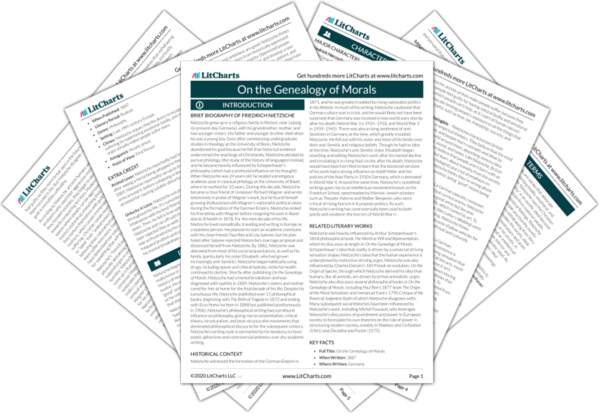Ree and Nietzsche both think that morality is a human invention. However, in
The Origin of Moral Sentiments, Ree assumes that being selfless and kind had evolutionary advantages that became entrenched in emerging ideas of morality. Nietzsche, however, disagrees with Ree—meaning that he likely believes there is some merit to selfishness and that there are more complex reasons for why selflessness has become the moral standard.
